Further evidence that Valve is here for the long-run, they've hired yet another developer to help improve open source graphics drivers on Linux.
Daniel Schürmann is the latest, confirmed by Valve developer Pierre-Loup Griffais on Twitter. So they have now hired Samuel "hakzsam" Pitoiset, Timothy Arceri (who previously crowdfunded his work to improve Linux drivers), Andres Rodriguez and more in addition to this latest.
It's going to be interesting to see if Valve continue to bring in more Linux folk, and the fact that Valve is still hiring people to help Linux gaming through driver work, VR work and so on is quite telling on how they plan to continue pushing Linux gaming for some time. They might not be shouting from the rooftops about it, but the work they're doing is vitally important.
Something else that Valve developer Pierre-Loup Griffais shared recently, is that approximately 13% of Mesa contributions in 2017 were from Valve developers:
Fun fact: Valve contributions seem to make up about 13% of Mesa commits in 2017. (commit count isn't relevant to contribution significance, so this fact is not only fun, but also useless).
It's going to be interesting to see what kind of splash Valve make, when VR support is solid on Linux and what their plans are after then. Some form of Steam Machine with SteamOS and a VR headset bundle, along with some upgrades to SteamOS could be quite interesting.
Celebrating again a company giving some efforts back to free and libre projects does not change anything. In fact it is the same "whitewashing" Google is doing, but hey ... it's all about proprietary software here and only sometimes about free / libre software!It actually changes quite a lot. Have you been keeping up with the pace of improvements to Mesa? It's quite incredible the progress made and a fair bit of it, as stated, has come from Valve-employed developers.
It's nothing to do with whitewashing, do you even know what that means, because it really doesn't sound like it.
You know why we mostly write about proprietary software here? That's what most games tend to be, we are a gaming site. If people emailed in more tips about open source games, we would cover them. However, from my own research (of which I do a lot), open source games are developed a lot slower and there's obviously vast amounts less of them.
I think you need a little less pessimism and a little more positivity.
Yeah and while that might be true feral puts a lot of time and effort into their ports however that's not the biggest reason I prefer it over wine. First off I have a thing against binary wrappers. At that point it's not a port it's basically like emulation, even if it doesn't have the same overhead. But most importantly when companies collect stats on who plays their games wine users = Windows users. That is something that is not ok with me and I'll take DRM any day over that. Especially if it's just steam DRM which is barely even DRM compared to some of the crap that's out there.Because I don't think companies should rely on wine for their games and if wine gets that good that might start happening.
I agree with you that companies should strive to do proper native ports. But relying on Feral's wrappers for them isn't any better than relying on Wine, if native aspect is concerned.
In fact, Wine has advantages that closed wrappers don't. It gives you more freedom. Not only it's FOSS with available code that you can modify and run as you like, it's not tied to any distributor and can be used with any game you want. Compare it to Feral's wrappers that are available on Steam only and only for a few titles selected by Feral. I.e. personally I don't benefit form Feral's wrappers at all, since I'm not using Steam, while I can easily use Wine with GOG and other DRM-free games.
Yes but wine isn't a port. Feral might be doing some wrapping but they're not wrapping the entire binary. I'll take ports over wrappers any day even if the port has wrapper libraries.What's the problem with strong FOSS competition?
In this case it reduces incentive for companies to natively support Linux.
Pumping as much cash into Linux supporting companies as possible is a big goal for Linux Gamers as cash is king.
I wouldn't argue with that, i.e. the fact that wrappers can have a chilling effect on making native ports. But that applies to all wrappers. By this logic you should see a problem with Feral too, since companies that use Feral's work cut costs and avoid proper native ports, using a wrapper instead. It's just cheaper for them. And on the other hand, if you are OK with some wrappers already, then you should be OK with all of them.
And see above, about what practical benefits Wine has in contrast with closed wrappers. Also, we as Linux users should support FOSS more, at least I'd expect that.
Last edited by Scoopta on 9 Feb 2018 at 11:24 am UTC
Yes but wine isn't a port. Feral might be doing some wrapping but they're not wrapping the entire binary. I'll take ports over wrappers any day even if the port has wrapper libraries.
I disagree with saying that Feral's wrapper has no effect on native gaming. It has. It reduces incentives to make native ports. It doesn't mean it's a bad thing, since wrapped release is better than no functioning option at all. But then your claim that binary wrapper somehow discourages native ports more doesn't make sense to me. It's IMHO completely irrelevant what kind of wrapping takes place if you are analyzing it as alternative to native port. It's all a shortcut that allows playing something without spending a lot on native rewrite. The only difference is that Wine allows it for anything, and Feral allow it for what they selected only.
So this whole argument is about marketing only (i.e. "viewed as Linux release" ), not about actual effect on native releases. Nothing stops developers doing what Topware did, and use Wine for marketed "official" Linux release.
This whole topic started as an answer to "Wine discourages native ports, while Feral are encouraging them". I don't see that difference. If anything, both provide non native options in different fashions, and one being a closed controlled by Feral product, while other is FOSS and can be used by anyone.
Last edited by Shmerl on 9 Feb 2018 at 2:58 pm UTC
Yes but wine isn't a port. Feral might be doing some wrapping but they're not wrapping the entire binary. I'll take ports over wrappers any day even if the port has wrapper libraries.
I disagree with saying that Feral's wrapper has no effect on native gaming. It has. It reduces incentives to make native ports. It doesn't mean it's a bad thing, since wrapped release is better than no functioning option at all. But then your claim that binary wrapper somehow discourages native ports more doesn't make sense to me. It's IMHO completely irrelevant what kind of wrapping takes place if you are analyzing it as alternative to native port. It's all a shortcut that allows playing something without spending a lot on native rewrite. The only difference is that Wine allows it for anything, and Feral allow it for what they selected only.
So this whole argument is about marketing only (i.e. "viewed as Linux release" ), not about actual effect on native releases. Nothing stops developers doing what Topware did, and use Wine for marketed "official" Linux release.
This whole topic started as an answer to "Wine discourages native ports, while Feral are encouraging them". I don't see that difference. If anything, both provide non native options in different fashions, and one being a closed controlled by Feral product, while other is FOSS and can be used by anyone.
Feral gets paid for their efforts and deliver outstanding quality and support in turn. With wine it is always a gamble if something works or not with a certain wine version and there is no support at all. I do consider that a difference.
The main point though is still that gaming-on-Linux will only start to rise and shine when developers and gaming studios see that money can be earned when publishing for Linux. Stated otherwise: that investing in Linux is worth it. That is simply not possible with wine, every game bought for wine-gaming is still a windows sell and will only strengthen windows as gaming platform.
Lets say wine would aim for perfect support for Rise of the Tomb Raider. Lots of people would then buy the windows version and that in turn would mean a financial disaster for Feral once they release their version.
So, Feral can find other form of activity rather than selling a closed wrapper. That's what competition does. CodeWeavers found a way to make money on their FOSS project. I don't see a need to say don't make FOSS projects because it threatens closed ones. That's not how things work, by this logic Linux itself shouldn't have been made.
Last edited by Shmerl on 9 Feb 2018 at 3:26 pm UTC
Feral gets paid for their efforts and deliver outstanding quality and support in turn. With wine it is always a gamble
No one stops developers from investing in Wine if they want to use it as a wrapper. Relationship doesn't need to be set up as "you need me as a middleman". It can be "I chose to you use your technology, so I'm going to contribute back to it".
Last edited by Shmerl on 9 Feb 2018 at 3:32 pm UTC
Lets say wine would aim for perfect support for Rise of the Tomb Raider. Lots of people would then buy the windows version and that in turn would mean a financial disaster for Feral once they release their version.
So, Feral can find other form of activity rather than selling a closed wrapper. That's what competition does. CodeWeavers found a way to make money on their FOSS project. I don't see a need to say don't make FOSS projects because it threatens closed ones. That's not how things work, by this logic Linux itself shouldn't have been made.
I wouldn't underestimate the value Feral and friends currently have for Linux. Gaming on linux/Linux for Desktop will go back straight to the middle ages if the few AAA publishers we have decide to leave Linux and focus on Mac/iOS only.
Yes but wine isn't a port. Feral might be doing some wrapping but they're not wrapping the entire binary. I'll take ports over wrappers any day even if the port has wrapper libraries.
I disagree with saying that Feral's wrapper has no effect on native gaming. It has. It reduces incentives to make native ports. It doesn't mean it's a bad thing, since wrapped release is better than no functioning option at all. But then your claim that binary wrapper somehow discourages native ports more doesn't make sense to me. It's IMHO completely irrelevant what kind of wrapping takes place if you are analyzing it as alternative to native port. It's all a shortcut that allows playing something without spending a lot on native rewrite. The only difference is that Wine allows it for anything, and Feral allow it for what they selected only.
So this whole argument is about marketing only (i.e. "viewed as Linux release" ), not about actual effect on native releases. Nothing stops developers doing what Topware did, and use Wine for marketed "official" Linux release.
This whole topic started as an answer to "Wine discourages native ports, while Feral are encouraging them". I don't see that difference. If anything, both provide non native options in different fashions, and one being a closed controlled by Feral product, while other is FOSS and can be used by anyone.
Questions... Not saying it's impossible, but the initial game publisher never takes into account the wine compatibility when an update occurs, and usually doesn't want to either. Who is going to take charge of tracking the updates for a given game and maintaining the wine builds? Feral is doing that for it's releases with support form the initial publisher. The wine community can't do that for all games/app that it strives to support. When a game gets broken after an update, in some cases, it takes a couple of weeks/months for wine to catchup. Some stay in an approximate state for a much longer time... Too long or not enough efficient to be viable. I'd be curious to see what form it could take, but can the community get organized to play the role of Feral, with Wine?
Edit: Typo.
Last edited by Mohandevir on 9 Feb 2018 at 3:58 pm UTC
I wouldn't underestimate the value Feral and friends currently have for Linux. Gaming on linux/Linux for Desktop will go back straight to the middle ages if the few AAA publishers we have decide to leave Linux and focus on Mac/iOS only.
If there is a distinct value, then competition isn't a problem, right? And if you worry that they'll be obsoleted by Wine, then Wine can provide that value all the same. So from Linux gaming perspective why is it bad? Competition usually moves things forward, and its lack causes stagnation.
Last edited by Shmerl on 9 Feb 2018 at 3:47 pm UTC
If there is a distinct value, then competition isn't a problem, right? And if you worry that they'll be obsoleted by Wine, then Wine can provide that value all the same. So from Linux gaming perspective why is it bad? Competition usually moves things forward, and its lack causes stagnation.
Thought from the other end, would you be happy being able to play all Windows games via WINE (and probably not getting any support by companies) and having no more games compiled to target Linux?
I wouldn't underestimate the value Feral and friends currently have for Linux. Gaming on linux/Linux for Desktop will go back straight to the middle ages if the few AAA publishers we have decide to leave Linux and focus on Mac/iOS only.
If there is a distinct value, then competition isn't a problem, right? And if you worry that they'll be obsoleted by Wine, then Wine can provide that value all the same. So from Linux gaming perspective why is it bad? Competition usually moves things forward, and its lack causes stagnation.
I will quote myself:
".. every game bought for wine-gaming is still a windows sell and will only strengthen windows as gaming platform."
With our insignificant market share we should combine forces and not encourage competition. Lets do that again once we have reached 20% market share. Wine should focus itself on applications and older games. Leave the market of newer titles to Feral and friends so that they properly count as Linux sell.
Thought from the other end, would you be happy being able to play all Windows games via WINE (and probably not getting any support by companies) and having no more games compiled to target Linux?
I personally will be more happy to have native games naturally. But playing them through Wine is better for me than "playing" through Feral's wrapper that I can't even access in my store at all (which means not playing at all).
Besides, Feral wrappers don't encourage native releases unlike some claim above. Actual support for Linux in game engines does, that's what we get from Unreal, Unity and the like who actually make native option available.
Last edited by Shmerl on 9 Feb 2018 at 4:03 pm UTC
Besides, Feral wrappers don't encourage native releases unlike some claim above.Feral shows that money can be earned when targeting Linux. Earning money is the only valid motivation for companies to further invest into Linux. They do currently prepare the way for market growth and more native titles in the future once the Linux market has (hopefully) reached a significant volume.
I will quote myself:
".. every game bought for wine-gaming is still a windows sell and will only strengthen windows as gaming platform."
With our insignificant market share we should combine forces and not encourage competition. Lets do that again once we have reached 20% market share. Wine should focus itself on applications and older games. Leave the market of newer titles to Feral and friends so that they properly count as Linux sell.
Lock into platforms is what publishers are obsessed with. Tools like Wine break platform walls to begin with, that's why it doens't sit well with publisher mindset.
But that's not even the main practical problem here. The main one is above - Feral wrapper is too limited (by nature of being closed and controlled by them). So no, I have no interest in leaving the market to them, especially when they have no interest in addressing my market to begin with. I'm yet to see even a single Feral game released DRM-free.
Last edited by Shmerl on 9 Feb 2018 at 4:08 pm UTC
Feral shows that money can be earned when targeting Linux.
So do many developers who sell Linux games. Feral isn't the only one who can show it. So the claim that there should not be competition in that field is unreasonable.
I personally will be more happy to have native games naturally. But playing them through Wine is better for me than "playing" through Feral's wrapper that I can't even access in my store at all (which means not playing at all).
I disagree, because one is paying for a game sold for Windows (and is strenghtening Windows market) and the other is paying for a game sold for Linux.
Besides, Feral wrappers don't encourage native releases unlike some claim above. Actual support for Linux in game engines does, that's what we get from Unreal, Unity and the like who actually make native option available.
We already had this discussion and I see no value in repeating it: Feral's games are compiled as native Linux binaries. They are not fully native in a broader sense of being targeted specifically at the native interfaces of Linux. (Obiously, using WINE is even less so.)
If you want fully native Linux games (in your undestanding of "native" ), you shouldn't use WINE either.
I personally am happy with good games targeted at and compiled for Linux with good support. Of course, the optimal case would be developers having Linux in mind from the beginning.
lots of blah blah about Feral wrappersI feel like you don't know what Feral's wrapper even does, which doesn't surprise me since you have been known as a hardline GOG fanatic for as long as I can recall. To our knowledge, Feral wraps the game's renderer and then translates those calls to OpenGL and Vulkan plus they tune the wrapper on a per-game basis (unlike Wine) to boost the performance of the game. Compare that to Wine where the wrapper wraps the entire binary, providing a clone of a Windows API and wraps the libraries too. Meanwhile, to our knowledge, Feral replaces the libraries and middleware with Linux-compatible counterparts. This means they act as a customer for Linux versions of middleware which means those middleware developers have a reason to keep supporting Linux which means that middleware is also available to people who do "native ports" (whatever that means today). This in addition to tuning the performance of Mesa when new games come out supporting newer OpenGL/Vulkan features (when was the last time you heard Wine do that? Those guys are barely using GL 4.0 now.).
So if you want to say that Feral's ports don't support Linux any more than Wine, I am going to have to say your GOG fanaticism has blinded you and you are just lashing out because they don't ship stuff through GOG, which they probably even can't because they only have limited ownership of the stuff they sell and the original publishers don't want to go to GOG.
1. Steam/valve take about 30% of a purchase as you know.
If valve would communicate to big companies that if they make a linux port, they would reduce their own % margin by a bit this could be an incentive to make the big companies make linux versions.
For example pubg or such games would think that a reduction of 30% to for example 29% (25% or whatever) would cover the cost of making their own linux port and even make them on their windows versions, more money because instead of 30% they must only give for example 29% or 25% to steam/valve.
Valve could make this offer to specific companies/for specific games "Valve's Linux Support Incentive" or something like that
When in the future by this incentiveprogram linuxgaming would grow Steam/valve could abandon the program because there would not be the need to have an incentive because their would be more and more linuxgamers and the companies themselves without extrafinancial incentive/subsidy would then port their AAA games to linux.
Valve and Steam could ask generally for 30% again as well and would have subsidized and grown linuxports this way.
Steam would give discount for windows versions as well in this way. Steam takes 30% of windows only version and in general 25 % for game which has linux port for example. The windows games would subsidize the linux ports. Just steam would make a little less money in the beginning but getting more linux ports of AAA Games.
Quality of the port would be a condition for the "Linux Port discount" as well so the game companies wouldnt make halfassed linux ports.
2. Another idea is a "kickstarter linux port coordination Homepage" to help feral interactive for example.
Japanese visual novels even use kickstarter to see if a game has support and when the campaign succeeds they translate the japanese game to english and release on steam without any company investment because of kickstarter funds. Examples are MuvLuv Alternate which made $1,255,444 in pledges. Other examples are Libra, Clannad etc. which got english ports because of kickstarter.
https://www.kickstarter.com/projects/muvluv/muv-luv-a-pretty-sweet-visual-novel-series
Many games like pillars of eternity got a linux port because of kickstarter "stretch goals" (much $ pledges) or else there wouldnt have been a linux port at all. So why dont make even more coordinated use of kickstarter help for linux ports in general and support for feral interactive for example.
I suppose you and liamdawe have perhaps the connections to communicate to Valve and Feral Interactive or the linux community to bring Valve's and Feral Interactive's attention to this plan which would help linuxgaming or open a discussion on the matter. Liamdewe could make an article on the main site perhaps as well to open a main discussion there as well if he wants.
I disagree, because one is paying for a game sold for Windows (and is strenghtening Windows market) and the other is paying for a game sold for Linux
One is playing a game sold for Windows, and other is not playing the game that Feral didn't port. That's the options. So for me the first is clearly better, since the second would be 100% of games that are available in DRM-free stores.
Last edited by Shmerl on 9 Feb 2018 at 4:21 pm UTC
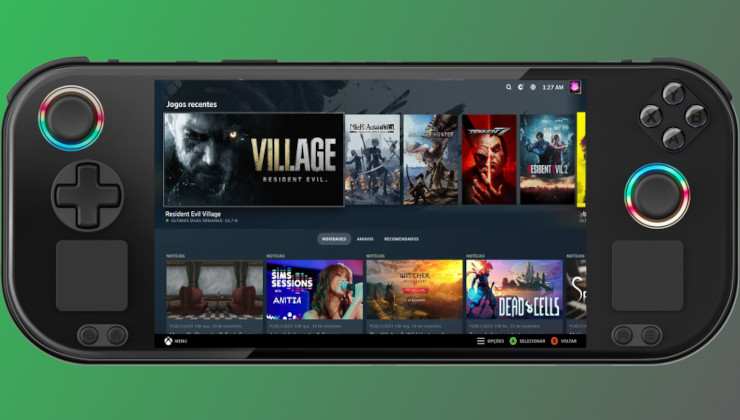
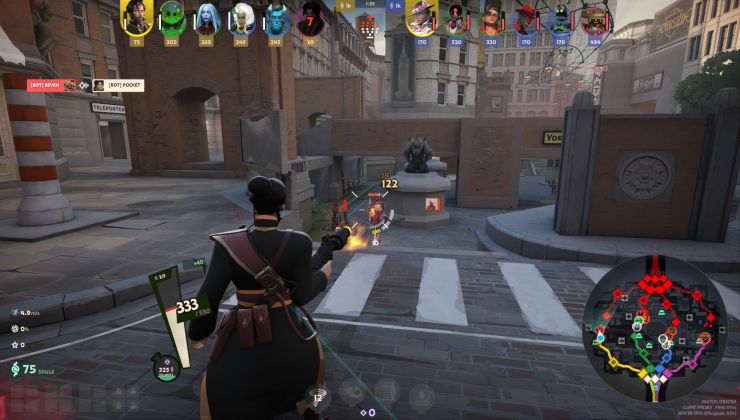
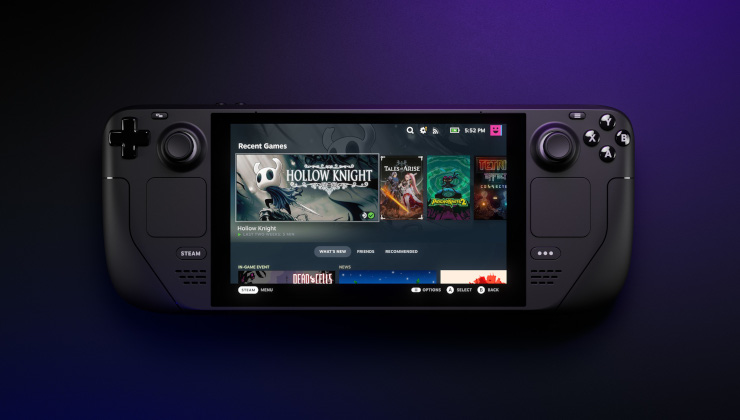
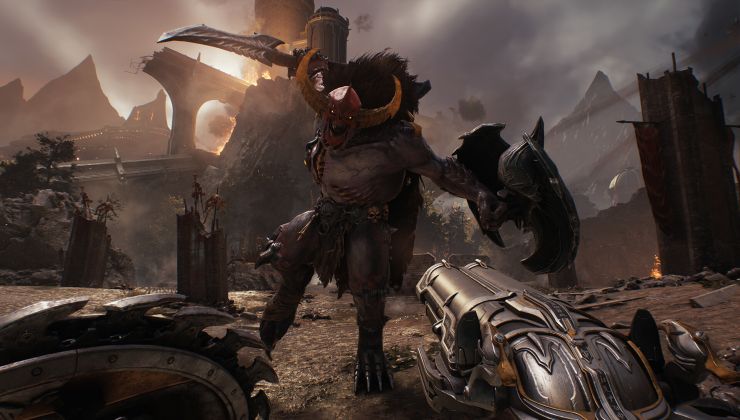





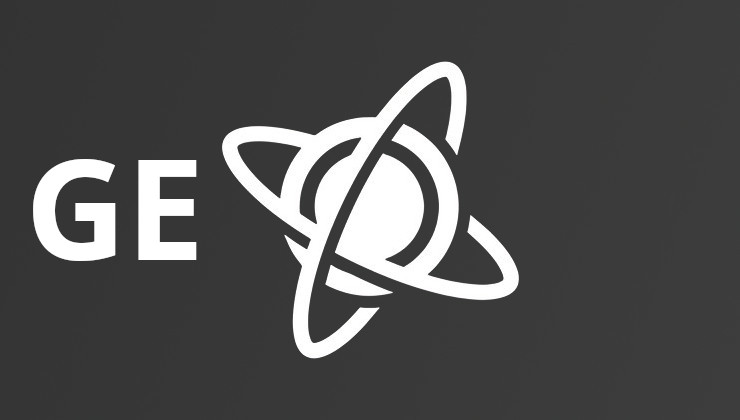 How to install GE-Proton on Steam Deck, SteamOS, Linux
How to install GE-Proton on Steam Deck, SteamOS, Linux An idiots guide to setting up Minecraft on Steam Deck / SteamOS with controller support
An idiots guide to setting up Minecraft on Steam Deck / SteamOS with controller support
See more from me